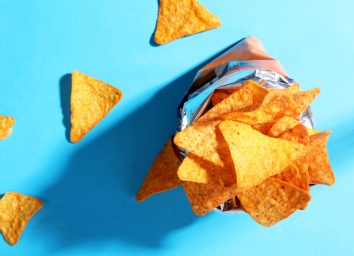6 Most Shocking Truths About the American Food Industry
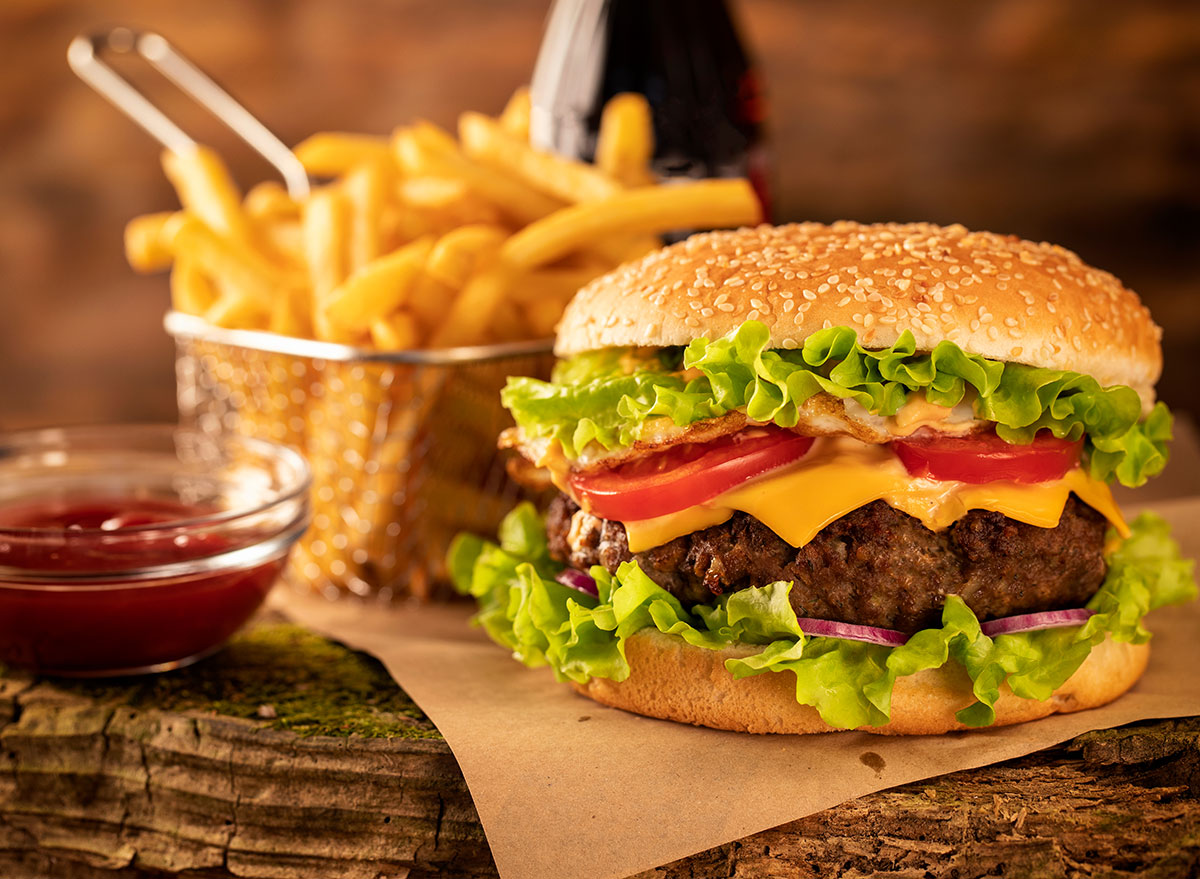
You've probably heard about some of the (gross) things that fast-food chains do behind the scenes. After all, the McDonald's moldy hot fudge/caramel sundae situation revealed by a former employee is hard to forget.
But the reality is that these secrets carry on across the entire food industry in America, not just fast food. And it gets much worse than moldy ice cream…
The truth about how our food is made, processed, and marketed has large-scale effects that, over time, can be detrimental to our environment and health.
Read on to find out the most shocking truths about the US food industry, and next, check out 8 Secrets Steakhouses Don't Want You to Know.
1.1 million animals are killed for food every hour
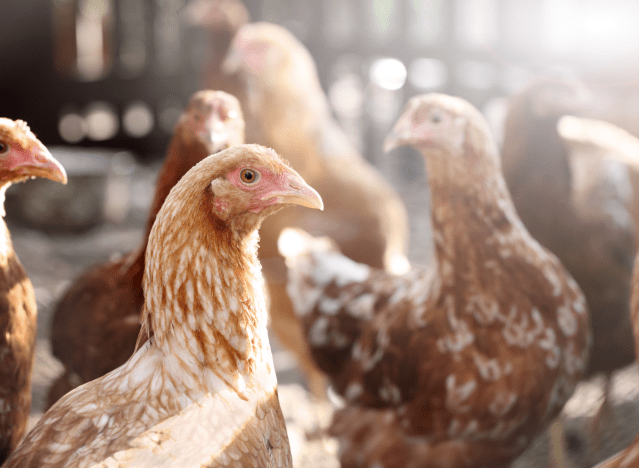
It's no surprise that so many people are adopting vegan and vegetarian diets given this fact, as reported by Animal Equality. Not only are these animals killed, but they suffer cruel treatment on factory farms. Chickens are raised in sheds with thousands of other birds, mother sheep are separated from their newborn lambs, turkeys are (unintentionally) boiled alive, and cows get their horns cut off. So, before you order a McDonald's Big Mac or Shake Shack Chick'n Shack, take a look at some of their vegan and vegetarian options.
400 gallons of water are used to make one chocolate bar
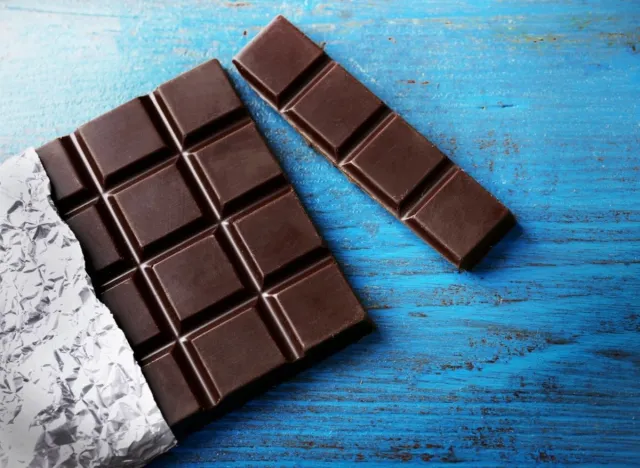
According to the Water Footprint Network, one 100-gram chocolate bar "costs" 1,700 liters of water, which equates to approximately 449 gallons. How could this be? Well, the path from cocoa beans to chocolate is a lengthy one. Between cocoa paste, cocoa butter, and cocoa powder, the amount of water needed in the production process adds up.
A single burger can have meat from up to 100 different cows
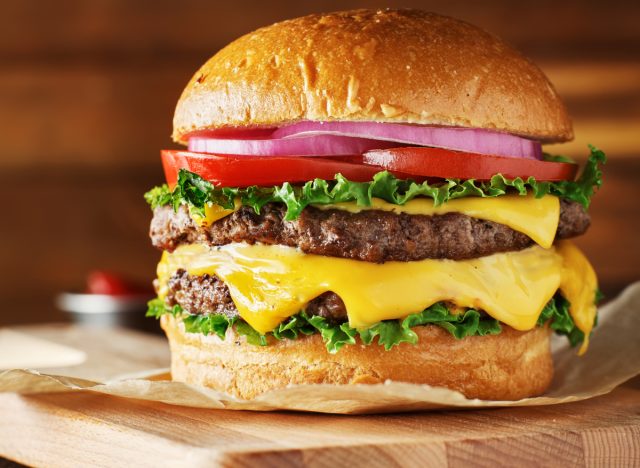
Did you think that you were eating meat from a singular cow in that cheeseburger? Think again. Meat producers often combine the meat of many cows into one singular product.
McDonald's, for example, confirmed that its beef patties may contain meat from as many as a hundred different animals. And the same goes for store-bought minced beef. According to The Washington Post, a Costco employee at the fresh meat department didn't know the exact number of cows in a single pack, "But it's more than a few," he said.
Over 100 billion pounds of food is wasted every year
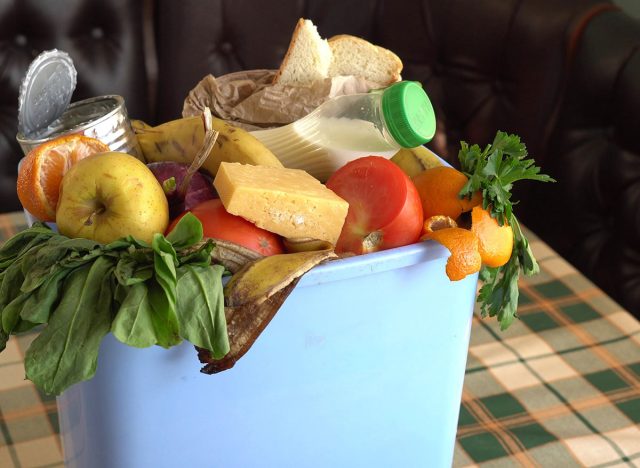
In 2010, the U.S. Department of Agriculture reported approximately 133 billion pounds of food wasted, which amounted to $161 billion worth of food. Waste happens across the food industry, whether it's on the agricultural, restaurant, or consumer level. However, the U.S. is currently trying to cut back on food waste, with the goal of reducing it by 50% by 2030.
Calorie counts don't have to be 100% accurate

That box of cookies might have a lot more calories than the company's letting on. The FDA states that nutrition labels can be up to 20% inaccurate. With such a large margin of error, we can only assume that calorie counts are not what the food industry wants us to believe.
Junk food is made to be addictive
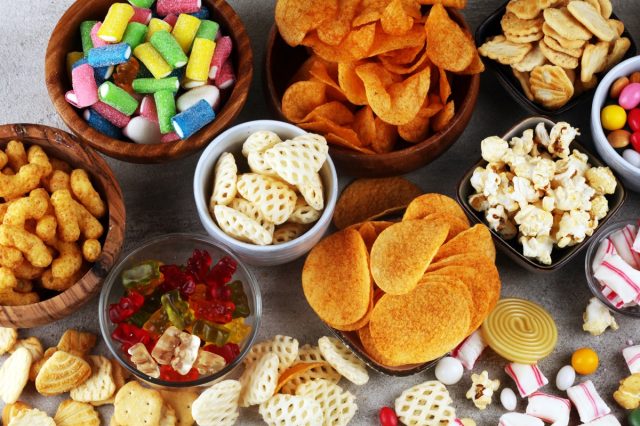
It's all too easy to eat an entire bag of Doritos or Lays in one sitting—and there's a reason for that. Back in 2013, The New York Times reported about the strategic calculations that go into recipes for highly-processed foods: Their flavors are meant to trick your brain into wanting more. It's no wonder that the CDC reports adult obesity in America to be as high as 42.4% in 2017–2018.
Want to know more about food industry secrets? Check out 20 McDonald's Secrets Staff Won't Tell You.

